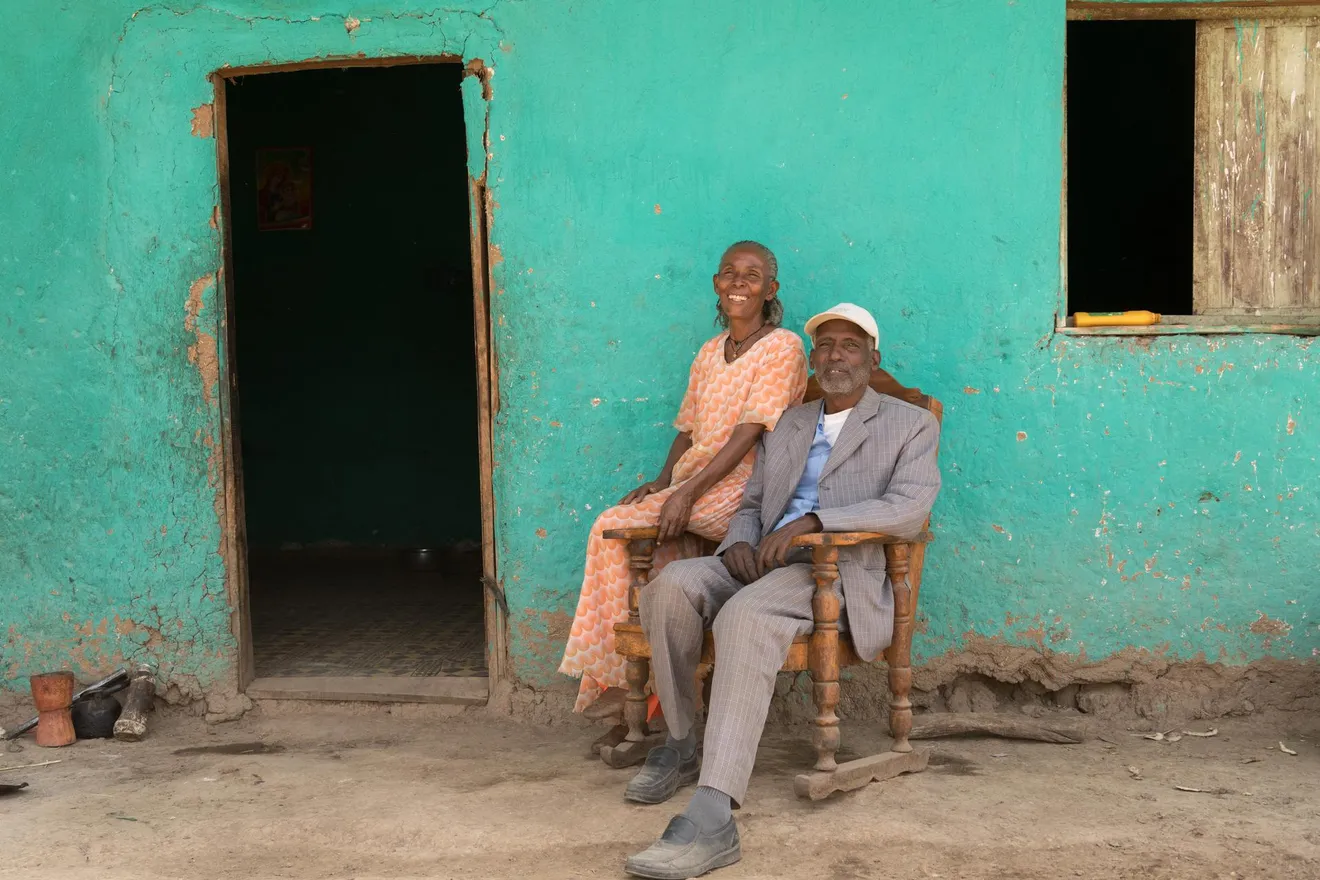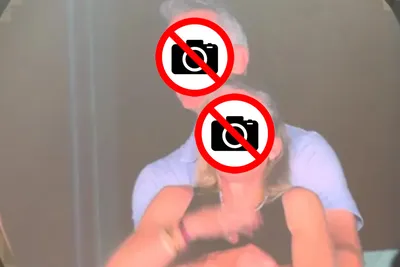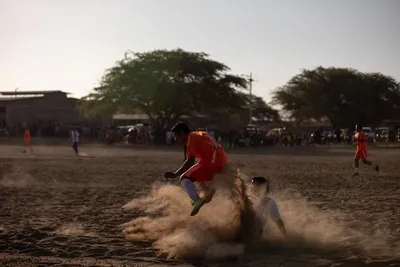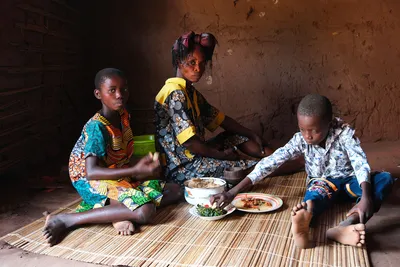Development work is under fire. Governmental and non-governmental organisations are looking for the right form of aid, and voices from the Global South are now increasingly being heard in the Global North. No one can avoid the themes of "decolonising aid" and racism any more.
With all the discussion, one question always tends to get sidelined:
Which images do we show?

Consider the impact of this image of Badeso J. and Kuftu G. at their home, where a solar panel was recently installed. With ethical storytelling, Badeso and Kuftu have the ability to say they don’t want this image to be published, whether they felt it wasn’t an accurate representation of their life in Ethiopia or because they simply didn’t like their image of themselves.
Photo: Maheder Haileselassie Tadese / Caritas Austria / Fairpicture
Google's suggested correction to the word "Afrotopia" says it all. "Afrotopia" is the title of a book by the Senegalese economist Felwine Sarr. In the book, he creates a vision for a “self-confident” Africa. Instead, Google insistently suggests the correction "Eurotopia" and thus, probably not quite coincidentally, underlines the very paradigm that Sarr is writing against: the Western concept of "development" as "a norm of social progress.”
Development as a cultural project
Sarr argues that development according to “Western ideas” is, above all, a cultural project. It keeps people in the Global South "reproducing a prefabricated model of society in which there is no place for their own local culture or it is even negatively valued." Countries or communities located “lower” on the Western development scale are associated with images of social and cultural deprivation, lack of education and poverty. This stigmatises entire societies with disdain, discrimination and racism.
Who has power - and who should have power
When asked about the biggest problems in development cooperation, Medinat Abdulazeez Malefakis has a clear answer: "Development cooperation [...] is still determined by long-established world orders and centuries-old power dynamics that made aid necessary in the first place." A Nigerian sociologist, Malefakis teaches at the Center for Development and Cooperation NADEL at ETH in Zurich. She promotes a paradigm shift with a critical look at the mechanisms of development cooperation. She argues that the inclusion of the local population is essential, but should not be limited to a participatory proxy. According to Malefakis, in most cases these processes only have an alibi function due to the biased assumptions that underlie them: "Affected population should no longer have to ask for a seat at the table of development cooperation. They should be determining who sits at such tables with them." Looking back to Felwine Sarr, real progress draws its strength from the skills, talents and traditions of the people and their societies.
Jörg Arnold Co-Founder | Fairpicture
Stereotypes and structural racism
A group of researchers at the University of Neuchâtel recently published a fundamental study on structural racism. They argue that "racial discrimination [...] does not presuppose an explicitly racist ideology or intention of a person or institution." It is experienced in everyday life nevertheless: when looking for housing, when looking for a job, during police checks. Even if such racism lacks intent: it exists. And it has an effect, it hurts and excludes. Stereotypical thinking plays a central role in sustaining these dynamics.
We create an idea of the world with the pictures we see and the stories we hear. If they are repeated often enough, they solidify into stereotypes that not only make it easier for us to individually find our way around a complex world, but also to use them as tools of power. This has always been the goal of successful propaganda and one of the basic mechanisms of structural racism.
The White Gaze
Like an iceberg, the real problem is hidden below the surface. The constant repetition of the White gaze on poverty in the Global South perpetuates the perception of deprivation. It fosters the attitude of a White paternalism deeply embedded in social knowledge structures that not only manifests itself in a Western sense of superiority, but also feeds a sense of inferiority. Or, as Felwine Sarr describes it in Afrotopia, "You agonise through comparative calculations and are doomed to constantly see yourself as the straggler who has to catch up and move up in the various rankings." Disenfranchised, needy, hopeless without the donation of Western organisations and grateful for any help – these stereotypical attributions illustrate Felwine Sarr's findings. It is not only fundraising that is caught up in such narratives, both through the images and words it relies on, because the market, conditioned to these stereotypes, supposedly “demands” it.
Breaking down stereotypes with ethical storytelling
Medinat Abdulazeez Malefakis is not the only one demanding that the future of development cooperation is shaped as a true co-creation of development partners and the affected population. Given the great importance of communication and fundraising in organisations, this new understanding should not simply be limited to the design of program work. To break harmful stereotypes, alternatives to existing narratives are needed. We require a new concept of how visual communication should be designed.
Fairpicture understands ethical storytelling as a co-creative process that enables different interests to be incorporated while acknowledging and challenging power differences. In other words, storytelling that includes the relationship between the photographer, the portrayed person, the client, and the audience that ultimately engages with the visuals. Mutual learning and trust, but also fair fees, are among the elements that characterise this relationship.
Storytelling is ethical when it does not endanger the people photographed and allows them control in the process. With ethical storytelling, photographed people have the right to know what happens to their photograph, to proactively agree with or decline being photographed or filmed and to withdraw their consent. And they have the right to be forgotten: their photograph has an expiration date.
Ethical storytelling does justice to the people, situations and realities photographed and offers readers and viewers a differentiated understanding of the world that is laid out before them.
Those who produce and publish visual material have a responsibility.
Visuals can reproduce negative stereotypes and stigmatise entire societies. But they can also break up stereotypes and contribute to a change in people's perception of the world and their relationship to each other. Visuals are instruments of power.
It is up to us how we use them.

July 2025 - Laura Abad Guerrero
Last week, that now-infamous Coldplay concert clip, where a “Kiss Cam” moment spiraled into global speculation. This follow-up is about asking whether the laws and practices we’ve normalized still make sense in a world where tech moves faster than consent.
Learn more about Consent by Ticket? Rethinking Visual Privacy in the Age of Virality

January 2022 - Aurel Vogel
Progress has a strange pace. Months pass without noteworthy changes and suddenly everything comes together. Last year Fairpicture pretty much followed this pattern. So let’s look backwards and connect the dots.
Learn more about Update #8: Connecting the dots

April 2025 - Laura Abad Guerrero
What OpenAI and Google’s copyright requests reveal about power, ownership, and ethical storytelling in the age of AI.
Learn more about AI, Copyright, and the Ethics of Consent